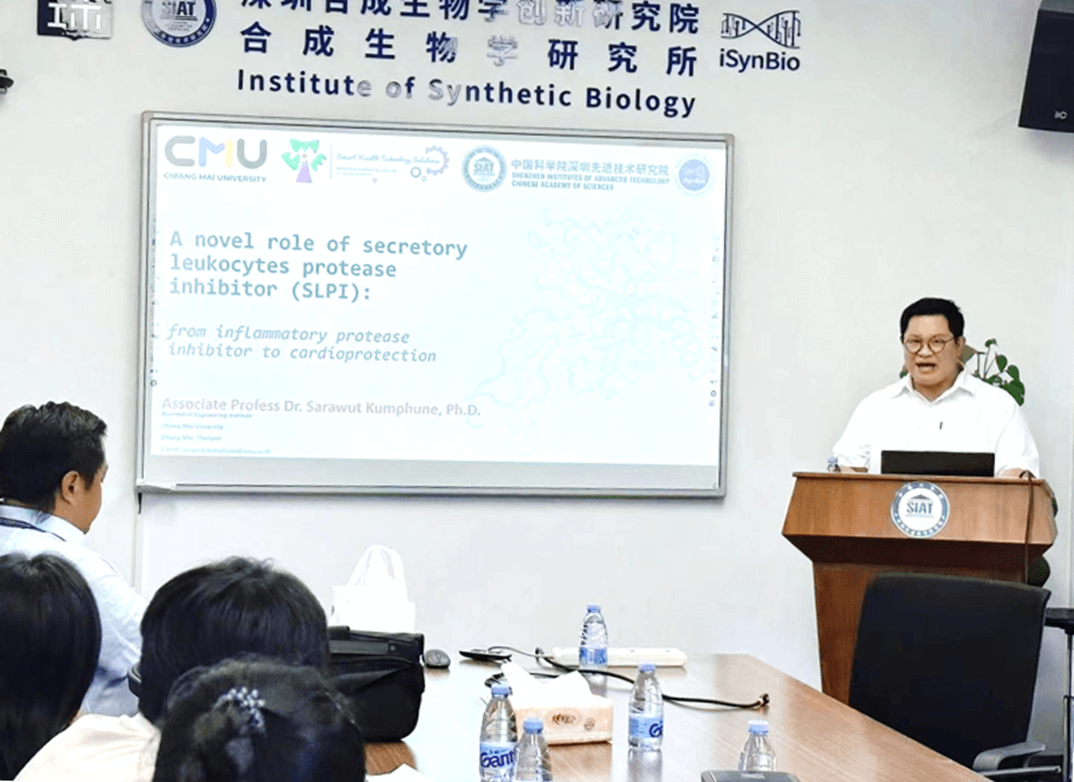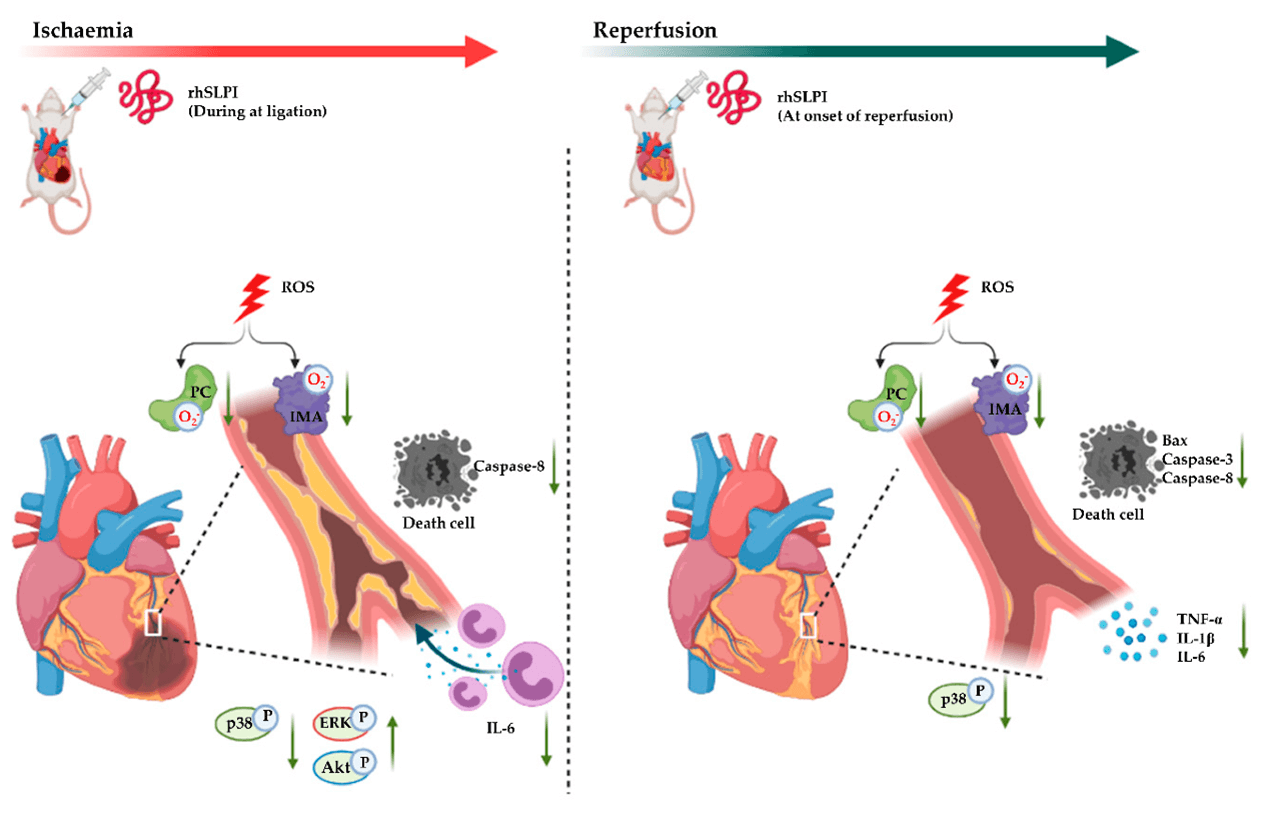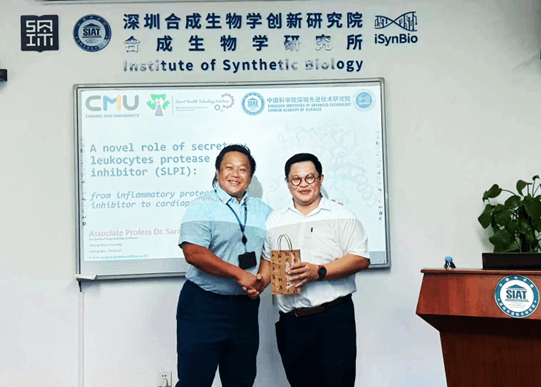The 287th iSynbio Academic Seminar
The 287th iSynbio Academic Seminar: A novel role of secretory leukocytes protease inhibitor (SLPI): from inflammatory proteases inhibitor to cardioprotection by Associate Professor Sawarut Kumphune.
SHENZHEN, CHINA - Associate Professor Sarawut Kumphune, from Chiang Mai University, shared his research work with the Shenzhen Institute of Advanced Technology, Chinese Academy of Sciences (SIAT) community, on Secretory Leukocytes Protease Inhibitor (SLPI) and its function as an inflammatory protease inhibitor and cardio protectant, Professor Sawarut gave his lecture at the Xili campus, under the invitation of Associate Professor Chun Loong Ho from the Institute of Synthetic Biology, SIAT.
Ischemic heart disease is one of the leading causes of heart disease-related death worldwide. The disease manifests due to blockage of the coronary arteries supplying oxygen and nutrients to the heart muscles, resulting in chest discomfort, shortness of breath, and in severe instances, heart failure. The serine protease inhibitor (SLPI) regulates the homeostatic balance of protease activities in host immune-triggered inflammation. However, SLPI was expressed at lower levels in the cardiovascular system leading Kumphune’s research team to investigate the cardioprotective effect of SLPI supplementation on ischemic heart disease.
In describing the ischemia pathogenesis caused by cardiac reperfusion injuries resulting from blood flow restorative procedures such as angioplasty, Kumphune describes the activation of inflammatory proteases that may result in cardiac cell death. Kumphune and his team’s research focus on discovering the underlying mechanism of SLPI in negating cardiac reperfusion injuries. In their research, purified SLPI and recombinantly-expressed human SLPI were found to exert cytoprotective effect against ischemic reperfusion injuries on in vitro, ex vivo and in vivo mice models. This cytoprotective effect is attributed to the inhibitory activity of SLPI on inflammatory enzymes. Additionally, the engineered recombinant anti-proteinase-deficient mutant SLPI (mtSLPI), to a lesser degree, confers protection against cardiac ischemia, suggesting that the other SLPI domains may be responsible for the cytoprotective effect.
Currently, Kumphune’s research aims to optimize the delivery of SLPI therapeutics to heart tissues via viral vectors, nanoparticles, and engineered extracellular vesicles. The take-home message from his talk is that solid evidence supports the use of SLPI treatment in reducing the risk of cardiac tissue injuries and post-ischemic remodelling that can lead to heart failure. Quoting Kumphume “In science, there are no shortcuts to truth”, we look forward to many more discoveries from him and his team.

Associate Professor Sawarut Kumphume from Chiang Mai University, Thailand, here presenting his work at the SIAT Xili Campus. CHENXI LI/SIAT.
 Biomedicines 09 00422 g008
Biomedicines 09 00422 g008Recombinant human SLPI protects the heart ischemia by the attenuation of intracellular ROS production, activation of Akt and p38 MAPK phosphorylation, reduction in inflammatory cytokines (TNF-α, IL-1β and IL-6) and reduction in apoptosis regulatory proteins (Bax, caspase-3, caspase-8). Adapted from Mongkolpathumrat. P, Kumphume. S, et. al., Biomedicine, 2021

Associate Professors Sawarut Kumphume and Chun Loong Ho, after the Seminal sharing session. CHENXI LI/SIAT.
